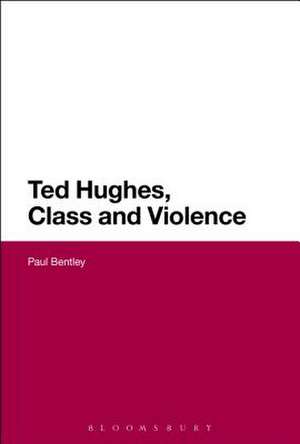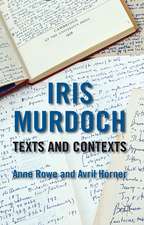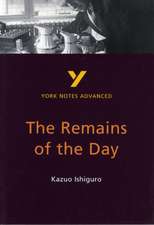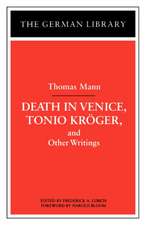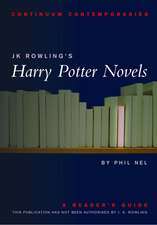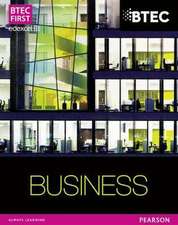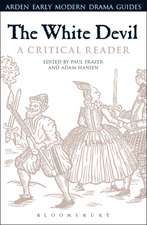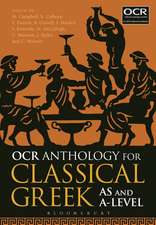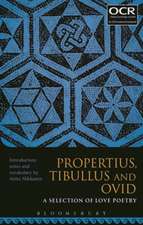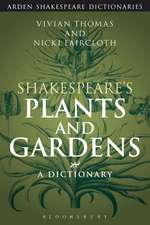Ted Hughes, Class and Violence
Autor Dr Paul Bentleyen Limba Engleză Paperback – 24 feb 2016
| Toate formatele și edițiile | Preț | Express |
|---|---|---|
| Paperback (1) | 255.11 lei 6-8 săpt. | |
| Bloomsbury Publishing – 24 feb 2016 | 255.11 lei 6-8 săpt. | |
| Hardback (1) | 771.84 lei 6-8 săpt. | |
| Bloomsbury Publishing – 23 apr 2014 | 771.84 lei 6-8 săpt. |
Preț: 255.11 lei
Nou
Puncte Express: 383
Preț estimativ în valută:
48.82€ • 50.86$ • 40.59£
48.82€ • 50.86$ • 40.59£
Carte tipărită la comandă
Livrare economică 08-22 februarie 25
Preluare comenzi: 021 569.72.76
Specificații
ISBN-13: 9781474275576
ISBN-10: 1474275575
Pagini: 168
Dimensiuni: 156 x 234 x 25 mm
Greutate: 0.25 kg
Ediția:NIPPOD
Editura: Bloomsbury Publishing
Colecția Bloomsbury Academic
Locul publicării:London, United Kingdom
ISBN-10: 1474275575
Pagini: 168
Dimensiuni: 156 x 234 x 25 mm
Greutate: 0.25 kg
Ediția:NIPPOD
Editura: Bloomsbury Publishing
Colecția Bloomsbury Academic
Locul publicării:London, United Kingdom
Caracteristici
Proposes innovative new political readings of Hughes's poems, non-fictional writings, notes, and letters
Notă biografică
Paul Bentley is Reader in English Literature at the University of St. Mark & St. John, Plymouth, UK. He is author of The Poetry of Ted Hughes: Language, Illusion & Beyond (1998) and Scientist of the Strange: The Poetry of Peter Redgrove (2002). He has published widely on modern poetry.
Cuprins
Introduction: Mytholmroyd, Mexborough, Cambridge1. 'In What Furnace Was Thy Brain?'2. 'The Laureate of Violence': Hughes and Heaney3. 'Redundant Energy': Mythical Reworkings4. The Laureateship and the Miners' Strike5. Class and The Classics: Hughes and Harrison6. Hughes and Plath: England versus AmericaAfterwordBibliographyIndex
Recenzii
Overall this is an important addition to the field of Hughes studies that provides a basis for diverse new approaches to Hughes's life and poetry. The book's main strength lies in its synthesis of a wide range of rich materials: political, cultural, biographical and poetic.
Bentley offers a Marxist reading of Hughes, distinguishing his own conclusions from those of other Marxist critics of the poet by concentrating on class and attempting to undo misreadings of Hughes's intentions and sometimes unconscious inclinations. Bentley argues convincingly that Hughes's early work is not at all blind to history's brutality. Bentley offers close readings of many of Hughes's poems. Summing Up: Recommended. Graduate students, researchers, faculty.
If in recent years we have seen the emergence of the "other" Sylvia Plath, Paul Bentley has given us the "other" Ted Hughes. Bentley shows that those labels often associated with Hughes-nature poet, poet of violence, Darwinian primitivist-have obscured Hughes's deep engagement with history, politics and biography. In a series of meticulous close readings, he reveals an ironist and self-parodist haunted by industrial slavery, colonial oppression, class warfare and parental trauma. Bentley suggests, convincingly, that we have been misreading Hughes all along: that his nature poems do not offer an illusory retreat from history, but rather a dark reflection of history's brutality. Ted Hughes, Class, and Violence is a groundbreaking study of a poet whose verse runs "deep as England."
The primary value of Bentley's book resides in how it drags this hitherto neglected dimension of Hughes's work into the light and refuses to let it return to the shadows . Weighing in at a mere 130 pages, this book is short and to the point . Nevertheless, this remains a vibrant and valuable contribution to the burgeoning field of Hughes scholarship.
Bentley offers a Marxist reading of Hughes, distinguishing his own conclusions from those of other Marxist critics of the poet by concentrating on class and attempting to undo misreadings of Hughes's intentions and sometimes unconscious inclinations. Bentley argues convincingly that Hughes's early work is not at all blind to history's brutality. Bentley offers close readings of many of Hughes's poems. Summing Up: Recommended. Graduate students, researchers, faculty.
If in recent years we have seen the emergence of the "other" Sylvia Plath, Paul Bentley has given us the "other" Ted Hughes. Bentley shows that those labels often associated with Hughes-nature poet, poet of violence, Darwinian primitivist-have obscured Hughes's deep engagement with history, politics and biography. In a series of meticulous close readings, he reveals an ironist and self-parodist haunted by industrial slavery, colonial oppression, class warfare and parental trauma. Bentley suggests, convincingly, that we have been misreading Hughes all along: that his nature poems do not offer an illusory retreat from history, but rather a dark reflection of history's brutality. Ted Hughes, Class, and Violence is a groundbreaking study of a poet whose verse runs "deep as England."
The primary value of Bentley's book resides in how it drags this hitherto neglected dimension of Hughes's work into the light and refuses to let it return to the shadows . Weighing in at a mere 130 pages, this book is short and to the point . Nevertheless, this remains a vibrant and valuable contribution to the burgeoning field of Hughes scholarship.
